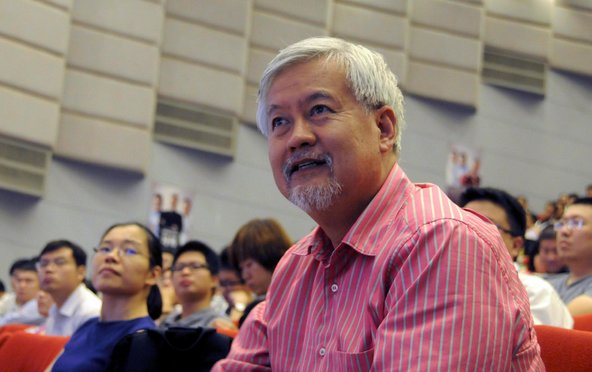Amid China’s booming online gaming and messaging industry, Tencent Holdings Ltd., Asia’s largest Internet company, reached a market value of more than US$100 billion on Monday. From Bloomberg:
Tencent rose 2.5 percent to HK$421.20 in Hong Kong yesterday, lifting its market value to HK$782.8 billion ($101 billion). The company run by billionaire Pony Ma joins six other members of Hong Kong’s benchmark Hang Seng Index in the $100 billion club, including PetroChina Co. (857) and China Mobile Ltd. (941)
[…] Tencent’s market capitalization is greater than that ofSoftBank Corp. (9984), McDonald’s Corp. (MCD) and Boeing Co. (BA) It trails a handful of technology companies worldwide, including Apple Inc., Google Inc., Microsoft Corp., Samsung Electronics Co. and Facebook Inc. (FB), which is valued at $103.5 billion.
[…] Tencent’s net income will increase 25 percent to 16 billion yuan this year, according to the average of 21 analysts’ estimates compiled by Bloomberg. It’s investing the most since 2009 on research and development, building games and other mobile applications to lure people spending more time on their smartphones and tablets.
Online gaming accounted for 52 percent of Tencent’s 43.9 billion yuan in revenue last year, while sales from mobile applications contributed about 9 percent, according to data compiled by Bloomberg. [Source]
While Chinese Internet companies like Tencent continue to flourish, Bill Bishop at The New York Times looks at the challenges that foreign firms will likely face in their attempts to expand into the Chinese Internet:
Twitter has opportunities to sell advertising to Chinese enterprises, but it is probably under no illusions that it can expand into the Chinese Internet. The company, along with other global Internet firms, may do well to pay attention to the Chinese government’s efforts to win allies for its approach to managing the Internet.
Last week, Lu Wei, the head of the State Internet Information Office, gave the keynote speech at the fifth China-United Kingdom Internet Roundtable. In his speech, called “Liberty and Order in Cyberspace,” Mr. Lu presented a vision of the Internet as a medium to be managed. That vision is far different from the one articulated by then-Secretary of State Hillary Clinton in her speech in January 2010, “Remarks on Internet Freedom,” in which she argued that “it’s critical that its users are assured certain basic freedoms.”
The actions by the American government to exploit the Internet and use it for surveillance, as disclosed in some of the classified documents provided by the former National Security Agency contractor Edward Snowden, may help China sell its view of Internet governance to many countries around the world. And that would not help the efforts of Twitter and other American Internet firms that are increasingly looking to international growth. [Source]








